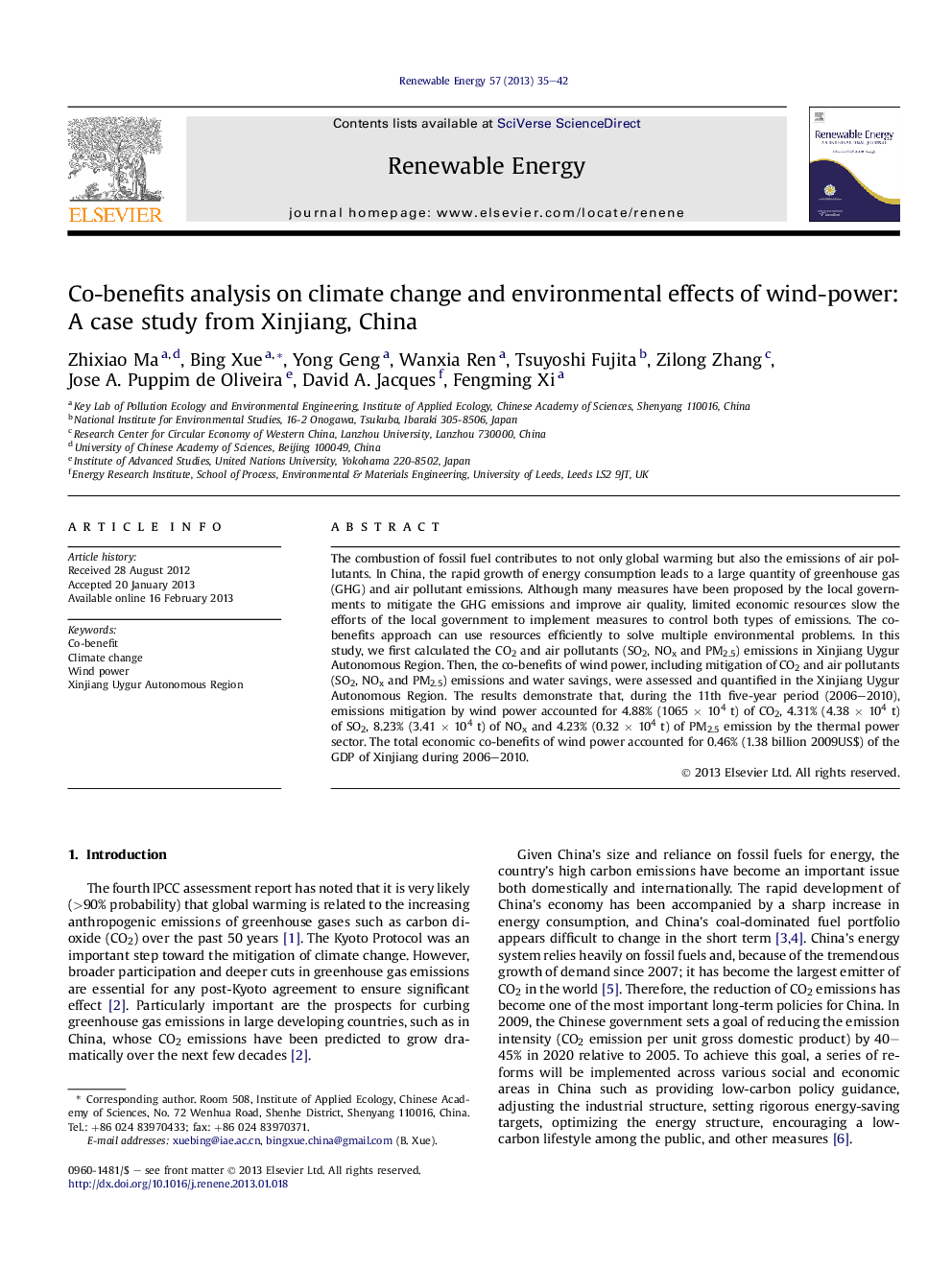| کد مقاله | کد نشریه | سال انتشار | مقاله انگلیسی | نسخه تمام متن |
|---|---|---|---|---|
| 300268 | 512479 | 2013 | 8 صفحه PDF | دانلود رایگان |

The combustion of fossil fuel contributes to not only global warming but also the emissions of air pollutants. In China, the rapid growth of energy consumption leads to a large quantity of greenhouse gas (GHG) and air pollutant emissions. Although many measures have been proposed by the local governments to mitigate the GHG emissions and improve air quality, limited economic resources slow the efforts of the local government to implement measures to control both types of emissions. The co-benefits approach can use resources efficiently to solve multiple environmental problems. In this study, we first calculated the CO2 and air pollutants (SO2, NOx and PM2.5) emissions in Xinjiang Uygur Autonomous Region. Then, the co-benefits of wind power, including mitigation of CO2 and air pollutants (SO2, NOx and PM2.5) emissions and water savings, were assessed and quantified in the Xinjiang Uygur Autonomous Region. The results demonstrate that, during the 11th five-year period (2006–2010), emissions mitigation by wind power accounted for 4.88% (1065 × 104 t) of CO2, 4.31% (4.38 × 104 t) of SO2, 8.23% (3.41 × 104 t) of NOx and 4.23% (0.32 × 104 t) of PM2.5 emission by the thermal power sector. The total economic co-benefits of wind power accounted for 0.46% (1.38 billion 2009US$) of the GDP of Xinjiang during 2006–2010.
► An integrated approach was established to measure co-benefits of wind power.
► Emissions of CO2, SO2, NOx and PM2.5 and water saving were qualified.
► Renewable energies have higher co-benefits compared to fossil fuels.
► Multiple reduction strategies are possible with potential economic benefits.
Journal: Renewable Energy - Volume 57, September 2013, Pages 35–42